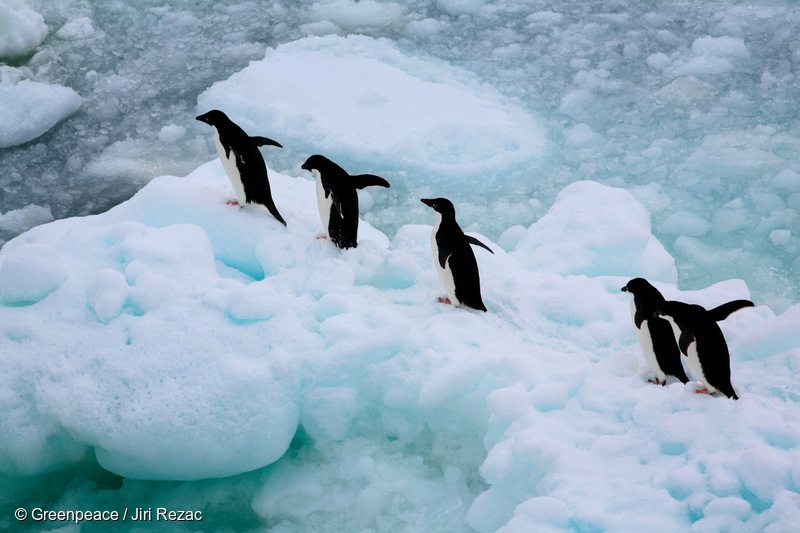For the fifth consecutive year, the Commission for the Conservation of Antarctic Marine Living Resources (CCAMLR) failed miserably to live up to its name and provide the vulnerable Antarctic marine environment with the protection it so desperately needs.
This was the first of these meetings that I didn’t personally attend, and I have been thinking a lot about my colleagues who have been down in Tasmania for the past two weeks. I know all too well what it is like to spend day after day lobbying delegates at coffee breaks and receptions, and to sit helplessly while one or two countries make arguments that even they don’t believe in.
Over the past five years, Greenpeace — as part of the Antarctic Ocean Alliance — has been calling for the creation of a network of ocean sanctuaries to protect one of the world’s most pristine ocean wildernesses. Yet, this pristine ocean and its highly unique marine life are under increasing pressure from a number of stressors, including climate change, ocean acidification and fishing.
CCAMLR is exceptional among high seas management bodies, in that at least on paper, conservation of Antarctic marine ecosystems is its primary objective. CCAMLR members committed to establish a network of protected areas by 2012. Unfortunately, there has been very little progress. Proposals to protect the Ross Sea and East Antarctica, though widely supported by CCAMLR parties, have been torpedoed by Russia.
CCAMLR’s failure points once again to the shortcoming of the current ocean governance regime and the wider problem of the control that fishing interests have over the current ocean management system. It’s like putting children in charge of the candy shop: not a clever idea.
Only two weeks ago, another fisheries body, the North Pacific Fishery Management Council, bowing to the industry again, killed a proposal to protect the Bering Sea canyons in spite of strong scientific basis and the limited impact on fishing interests. And even when conservation measures are adopted, they are often rolled back after a few years, undermined by other industry-serving bodies, or simply not enforced. This is particularly the case in areas of the high seas.
The crazy thing is that by serving industry interests, these management bodies not only fail to protect our oceans, but they’re also shooting themselves in the foot as they damage the ecosystems that support the very resources they profit from.
We need to break with the industry-focused status quo and take a more holistic approach to the way we manage our oceans, based on a precautionary, ecosystem-based approach. We need an overarching mechanism that will hold management bodies accountable and force them to comply with their obligations to protect and preserve the marine environment.
In March 2016, governments will start developing a new instrument under the Law of the Sea Convention to protect high seas marine biodiversity. This is the opportunity to fill existing gaps in the way we manage our oceans and create a system that puts long term conservation right at the center.
In the meantime, there are some hopeful signs for the Southern Ocean. China was more supportive this year, leaving Russia more isolated than ever. And all members agreed to a special inter-sessional meeting to discuss the Ross Sea proposal. It will be up to ocean lovers around the world to raise our voices loud enough to make sure next year’s meeting is a success.



